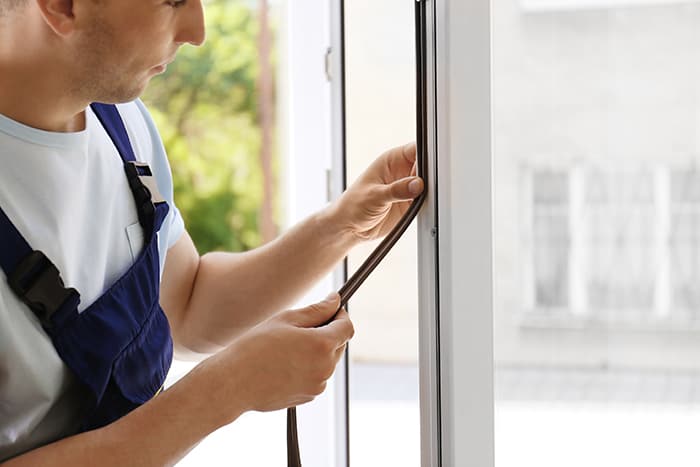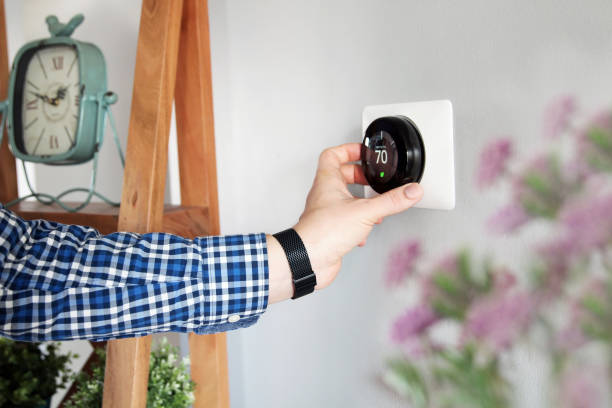Buying a fixer-upper in Greater Boston can be a smart move—affordable entry, design freedom, and long-term equity gains. But let’s be real: most older homes aren’t exactly energy efficient.
Whether you’re planning to live in it or flip it, making your new home more energy-efficient can cut your monthly bills, improve comfort, and increase resale value. Here are 10 ways to do just that.
1. Get a Professional Energy Audit
Start with a home energy audit. Many local utility companies offer this service for free or at a discount. The audit will identify exactly where your home is losing energy—think drafty windows, poor insulation, or outdated appliances.
📌 Pro Tip: Check with Mass Save for audit rebates and incentives available in Massachusetts.
2. Seal Drafts Around Windows, Doors, and Attic Spaces
A lot of heat escapes through small gaps you can’t even see. Use weatherstripping, caulk, and door sweeps to block out drafts, especially around windows, doors, attic hatches, and baseboards.

💡 Energy savings: Sealing leaks can reduce energy use by up to 20% annually.
3. Add (or Upgrade) Insulation—Starting with the Attic
Insulating your attic is one of the most cost-effective upgrades you can make. A properly insulated attic helps regulate indoor temperature year-round, lowering your heating and cooling bills.
📈 Return on Investment: Up to 107%, according to national remodeling data.
4. Install Energy-Efficient Windows—or Use Quick Fixes
Replacing windows isn’t cheap, but it’s often worth it in older homes. Energy Star-rated windows can significantly reduce heat loss and noise. Not in the budget? Install storm windows or add thermal curtains to get a similar effect.
🔧 Low-cost upgrade: Use window insulation film kits as a temporary fix during colder months.
5. Upgrade to a Smart Thermostat
Smart thermostats like Nest or ecobee learn your habits and adjust the temperature automatically. That means less waste—and lower bills.

📊 Average savings: Around $180/year on heating and cooling.
6. Replace Outdated Appliances with Energy Star Models
Older appliances are energy hogs. Look for Energy Star-rated refrigerators, dishwashers, washers, dryers, and water heaters. These models are designed to use less electricity and water.
💸 Bonus: Many Massachusetts utility programs offer rebates on appliance upgrades.
7. Swap Out Lighting for LEDs
This is the lowest-hanging fruit on the list. LED bulbs use 75% less energy and last up to 25x longer than traditional incandescents. Swap them out in every room, especially high-use areas like kitchens and bathrooms.
8. Service or Replace Your HVAC System
Fixer-uppers often come with ancient heating or cooling systems. Get your furnace, boiler, or AC serviced—or consider replacing them with more efficient options like mini-splits or heat pumps.
🌱 Looking ahead: Heat pumps are more eco-friendly and may qualify for federal tax credits.
9. Insulate Hot Water Pipes and the Water Heater
This one’s often overlooked, but wrapping your hot water heater and pipes keeps heat in longer—reducing how hard your system has to work.
📦 Pipe insulation kits cost under $20 and can make a noticeable difference in hot water speed and temperature retention.
10. Use Landscaping for Natural Climate Control
Planting shade trees or adding strategic shrubs can help reduce summer cooling costs and shield your home from winter winds. It’s functional, and it boosts curb appeal too.

🌳 Fun fact: A well-placed tree can reduce cooling costs by up to 25%.
Why Energy Efficiency Matters in 2025
With utility costs rising (the average Massachusetts home now pays over $2,500/year in energy bills), efficiency upgrades are more important than ever. Additionally, today’s buyers prioritize sustainability—78% of millennials are willing to pay more for energy-efficient features.
Final Thoughts: Make Your Fixer-Upper Work Smarter
Fixer-uppers have huge potential—but without energy upgrades, they can drain your wallet. Small improvements add up quickly, saving you money while making your home more comfortable and attractive to future buyers.
Whether you’re renovating in Roslindale, Quincy, or Somerville—Torii Homes can help you navigate every step of the process, from buying the right fixer-upper to finding trusted contractors and maximizing resale value.
This blog is an update on 10 Ways to Make your Fixer-Upper more Energy Efficient– read on for more tips on how to maximize your home’s efficiency.

